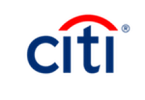New Report Finds That Closing the Racial Wealth Gap Would Lead to a $24 Billion Boost to Long Island’s Economy
PolicyLink releases ‘The Equity Profile of Long Island’, a groundbreaking report on the state of economic inclusion on the island
Long Island, NY, April 24, 2017 /3BL Media/ – PolicyLink today launched An Equity Profile of Long Island, a new report that shows how persistent segregation and racial disparities in wealth, housing, educational attainment and many other areas is costing Long Island billions of dollars in potential economic growth each year. A detailed policy brief accompanying the Equity Profile was also released providing a series of recommendations designed to close the racial wealth divide which would result in a major boost to Long Island’s economy.
"The realities of Black Long Islanders underscore the need to dismantle racial exclusion," said Angela Glover Blackwell, CEO of PolicyLink. "Disaggregated data allows us to get a true picture of the regional economy, and can inform the policy changes necessary to enable Black residents to share in the prosperity flowing in from new development. That is the key to achieving equity."
The profile and accompanying policy brief were produced by PolicyLink and the Program for Environmental and Regional Equity (PERE) at the University of Southern California, with lead funding and support from Citi Community Development and funding from Long Island Community Foundation and The Robert Wood Johnson Foundation.
“This report paints a stark picture of the economic realities facing communities of color in my district and across Long Island,” said U.S. Rep. Gregory Meeks. “But the report also provides a source of hope by making a powerful economic case for greater inclusion. I commend PolicyLink and all the partners involved in the report for both raising awareness and developing solutions to these complex but urgent challenges.”
“This study includes important data on the all too familiar issue of the lack of affordable housing options available in our communities,” said Bob Annibale, Global Director of Citi Community Development and Inclusive Finance. “One promising solution is the formation of the Community Land Trust of Long Island, created through a collaboration among Citi Community Development, Long Island Housing Partnership, Suffolk County, the Village of Patchogue and the Town of Brookhaven. The Community Land Trust, which is the first of its kind on the Island, is creating affordable homeownership opportunities by transforming vacant properties that are donated or transferred by municipalities.”
The report was released at a conference in Uniondale where more than 100 policymakers, employers, nonprofit leaders, advocates, researchers, and donors convened to begin addressing the challenges outlined in the study.
“The findings from this important research are simple. Embracing the diversity of Long Island will lead to an economically stronger Long Island,” said Suffolk County Executive Steve Bellone. “I have always been committed to ensuring that Suffolk County is a place where everyone can contribute and benefit fully from a thriving Long Island economy.”
The Equity Profile draws from dozens of public and private data sources and incorporates hundreds of data points presented across five sections. The first section describes the region’s complex and evolving demographics. The next three sections present indicators of the economic vitality, readiness, and connectedness. The final section explores the economic benefits of greater economic inclusion in communities of color. The analyses and recommendations were also informed by interviews conducted with a number of public, private, and nonprofit stakeholders.
Key findings include:
- Black and Latino households face high housing costs with over 63% of renters being “housing cost burdened” (paying more than 30% of their income on housing costs), 10 percentage points higher than white renter households. There are similar disparities between black homeowners compared with white homeowners.
- Communities of color on Long Island have higher rates of poverty and working poor – black residents are three times as likely as white residents to live below poverty.
The Urban League of Long Island and the Long Island Community Foundation serve as local conveners to promote community engagement and local development and implementation of solutions.
“As the country's first suburb, Long Island can set the example for other regions,” says Lorie Slutsky, president of The New York Community Trust, the parent organization of the Long Island Community Foundation. “For the Island to fully prosper, it needs to unleash the potential of all of its residents.”
“This data-driven Equity report will provide the leverage needed to guide the development and enforcement of policies that eliminate barriers that impede equitable access and opportunity for Black residents in America's first suburb, Long Island, New York,” said Theresa Sanders, President and CEO of the Urban League of Long Island. “The report will serve as model for equitable change in other suburban communities.”
To download the full report, please click here. To download, the policy brief, please click here.
###
PolicyLink
PolicyLink is a national research and action institute advancing economic and social equity by Lifting Up What Works®. For more information, visit PolicyLink.org. Through the All-In Cities initiative, we equip city leaders with policy ideas, data, and strategy to make racial economic inclusion and equitable growth their reality.

